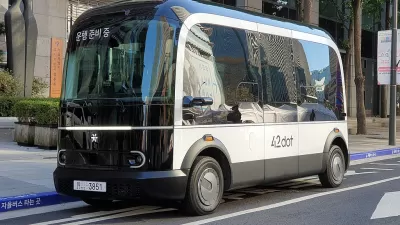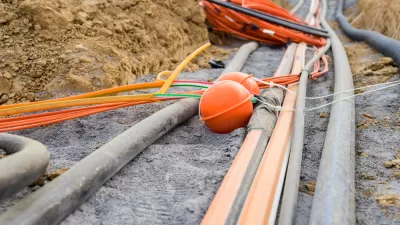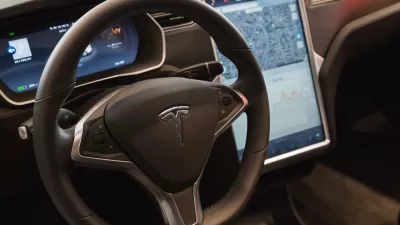Michigan State University plans to turn its 5,200-acre campus into a test site for advanced transportation technologies.

Michigan State University is launching a campus-wide mobility research initiative that will apply artificial intelligence, behavioral science, and cloud storage to advance autonomous technology.
Already, the university has installed charging stations for electric vehicles and a testing site for autonomous vehicles on campus. Off campus, MSU has embedded smart sensors on the Mackinac Bridge as part of a project developing the hardware that will allow autonomous vehicles to communicate with infrastructure and other cars. Faculty and student researchers are also using artificial intelligence to predict human and vehicular behavior in hopes of improving guidance systems for autonomous vehicles.
On top of studying technological advancements, the university is taking a holistic approach to new mobility—tackling potential legal challenges, forecasting consumer behavior, and developing navigation apps that integrate ride-hailing, public transit, and a suite of other options.
FULL STORY: MSU Turning Campus Into Mobility Test Site

Planetizen Federal Action Tracker
A weekly monitor of how Trump’s orders and actions are impacting planners and planning in America.

Restaurant Patios Were a Pandemic Win — Why Were They so Hard to Keep?
Social distancing requirements and changes in travel patterns prompted cities to pilot new uses for street and sidewalk space. Then it got complicated.

Map: Where Senate Republicans Want to Sell Your Public Lands
For public land advocates, the Senate Republicans’ proposal to sell millions of acres of public land in the West is “the biggest fight of their careers.”

Maui's Vacation Rental Debate Turns Ugly
Verbal attacks, misinformation campaigns and fistfights plague a high-stakes debate to convert thousands of vacation rentals into long-term housing.

San Francisco Suspends Traffic Calming Amidst Record Deaths
Citing “a challenging fiscal landscape,” the city will cease the program on the heels of 42 traffic deaths, including 24 pedestrians.

California Homeless Arrests, Citations Spike After Ruling
An investigation reveals that anti-homeless actions increased up to 500% after Grants Pass v. Johnson — even in cities claiming no policy change.
Urban Design for Planners 1: Software Tools
This six-course series explores essential urban design concepts using open source software and equips planners with the tools they need to participate fully in the urban design process.
Planning for Universal Design
Learn the tools for implementing Universal Design in planning regulations.
Heyer Gruel & Associates PA
JM Goldson LLC
Custer County Colorado
City of Camden Redevelopment Agency
City of Astoria
Transportation Research & Education Center (TREC) at Portland State University
Camden Redevelopment Agency
City of Claremont
Municipality of Princeton (NJ)





























